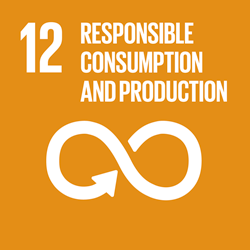Technological watch
Solar energy-assisted reactor for the sustainable biodiesel production from Butea monosperma oil: Optimization, kinetic, thermodynamic and assessment studies
In this study, a solar energy-assisted reactor is developed and utilized for biodiesel production from Butea monosperma oil. The power generated by the developed solar photovoltaic (PV) modules could be essentially a clean and safe energy source. From the optimized conditions, a maximum yield of 94.3% Butea monosperma methyl ester (BMME) is achieved with the parameters of 6:1 M ratio of methanol-to-oil, 1.2% of catalyst, 65 min of reaction duration, and reaction temperature of 60 °C, where these parameters are obtained through a computational modelling using the response surface methodology (RSM) algorithm equipped with central composite design (CCD) algorithm. Fatty-acid composition of oil is determined using gas-chromatographic analysis. Fuel properties of the produced BMME and its blends with diesel are evaluated according to the ASTM standards. Further, the BMME is characterized using FTIR and 1H NMR techniques. From the kinetic studies conducted, the activation-energy (Ea) and frequency-factor (A) are estimated to be 14.55 kJ/mol and 3.02 min?1, respectively. In addition, the thermodynamic analysis revealed that the enthalpy and entropy of the system is found to be 13.86 kJ/mol and ?3.45 kJ/mol k?1, respectively. The assessment of sustainability indicators for BMME production is also evaluated through green chemistry metrics. The green metrics such as E-factor, atom economy, atom efficiency, reaction mass efficiency and atom utilization are found to be 0.17, 91.93%, 86.68%, 85.47% and 94.01%, respectively.






